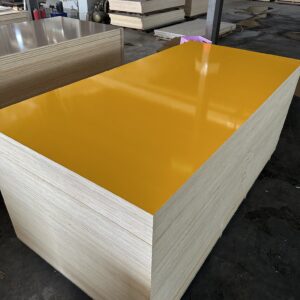Boiling Waterproof (BWP) Plywood for sale
Boiling Waterproof (BWP) Plywood for Sale: The Ultimate Guide
When it comes to choosing durable and versatile wood for construction, Boiling Waterproof (BWP) plywood is a top contender. BWP plywood is specially designed to withstand harsh conditions and is known for its exceptional resistance to water. It is ideal for both residential and commercial projects, especially where moisture or water exposure is a concern. Whether you’re building a deck, kitchen cabinets, or marine structures, BWP plywood is the material that will ensure longevity and stability.
In this article, we will explore what Boiling Waterproof plywood is, its features, applications, and provide a guide to purchasing BWP plywood. Additionally, we’ll answer some frequently asked questions to help you make an informed decision when looking for BWP plywood for sale.
What Is Boiling Waterproof (BWP) Plywood?
Boiling Waterproof plywood is a type of plywood that is manufactured with special waterproofing treatments, making it suitable for exposure to moisture and water for prolonged periods. This plywood is constructed with phenolic resin or melamine formaldehyde adhesives that enhance its waterproof capabilities. These adhesives ensure that the plywood does not swell or degrade even when submerged in boiling water for extended periods, hence the term “Boiling Waterproof.”
Key Features of BWP Plywood:
-
High Water Resistance: BWP plywood can withstand boiling water without delaminating or deteriorating.
-
Durability: Resistant to fungi, bacteria, and termites, making it perfect for use in humid or wet environments.
-
Strength: Known for its strength and ability to bear heavy loads, making it ideal for structural applications.
-
Long Lifespan: Due to its resistance to water and other environmental factors, BWP plywood lasts longer than standard plywood options.
-
Versatility: Used in various applications, from furniture making to marine construction, as well as in both outdoor and indoor settings.
Applications of BWP Plywood
Boiling Waterproof plywood is used in various industries where water-resistant materials are required. Here are some of the common applications:
1. Marine Construction
-
Ideal for boats, ships, and other watercraft due to its ability to withstand prolonged exposure to water.
2. Kitchen and Bathroom Construction
-
Perfect for kitchen cabinets, shelving, and bathroom fixtures where moisture resistance is essential.
3. Furniture Making
-
Used in making long-lasting furniture that will endure high humidity levels, such as tables and cupboards.
4. Decking and Outdoor Structures
-
Suitable for decks, garden furniture, and other outdoor structures exposed to rain and humidity.
5. Commercial and Industrial Construction
-
BWP plywood is also used in heavy-duty commercial applications, including flooring, roofing, and cladding for buildings in high-moisture environments.
Why Should You Choose Boiling Waterproof (BWP) Plywood?
1. Enhanced Durability
-
BWP plywood lasts longer in harsh weather conditions compared to ordinary plywood, making it a cost-effective investment in the long run.
2. Strong Water Resistance
-
It can withstand exposure to rain, humidity, and even boiling water, offering unmatched protection in areas prone to moisture.
3. Eco-Friendly
-
Many BWP plywood manufacturers use eco-friendly materials and processes to minimize environmental impact.
4. Multipurpose Use
-
From high-moisture areas like kitchens and bathrooms to outdoor applications, BWP plywood is versatile and can be used across various sectors.
Where to Find Boiling Waterproof (BWP) Plywood for Sale?
Finding BWP plywood for sale can be easy if you know where to look. You can find BWP plywood at:
1. Local Plywood Suppliers
-
Many local timber and plywood suppliers stock BWP plywood. Be sure to inquire about the grade, size, and treatment of the plywood they offer.
2. Online Stores
-
Numerous online retailers specialize in selling construction materials, including BWP plywood. You can easily browse through various brands, compare prices, and check customer reviews.
3. Home Improvement Stores
-
Large home improvement chains may carry BWP plywood for projects requiring high water resistance.
4. Specialized Timber Dealers
-
Dealers that focus on high-quality timber products are likely to carry BWP plywood suitable for demanding applications.
Before purchasing, ensure that the plywood is certified for use in your specific project. Look for signs of authenticity, such as certification from regulatory bodies and details about the resin or adhesives used.
FAQs About Boiling Waterproof (BWP) Plywood
1. What is the difference between BWP plywood and MR plywood?
-
BWP plywood offers higher water resistance than MR (Moisture Resistant) plywood. While MR plywood can handle normal humidity levels, BWP plywood is designed to resist prolonged water exposure, including boiling water.
2. Can BWP plywood be used outdoors?
-
Yes, BWP plywood is perfect for outdoor applications as it is highly resistant to water, making it ideal for decking, fences, and outdoor furniture.
3. Is BWP plywood expensive?
-
BWP plywood tends to be more expensive than regular plywood due to its superior quality and water-resistant properties. However, its durability and long lifespan make it a cost-effective option for certain projects in the long term.
4. Can BWP plywood be used in flooring?
-
Yes, BWP plywood is often used in flooring applications, especially in areas prone to high moisture, such as basements and bathrooms.
5. How long does BWP plywood last?
-
With proper care and maintenance, BWP plywood can last for many years, even in high-moisture environments. Its lifespan depends on the grade of the plywood and the specific application.
6. Can BWP plywood be painted or stained?
-
Yes, BWP plywood can be painted or stained. However, ensure that you use a suitable primer and finish to enhance its durability and appearance.
7. What is the grade of BWP plywood?
-
BWP plywood is graded based on its durability and water-resistant properties. The higher the grade, the more resistant the plywood is to water and wear. Be sure to choose the appropriate grade based on your project requirements.
Showing the single result
